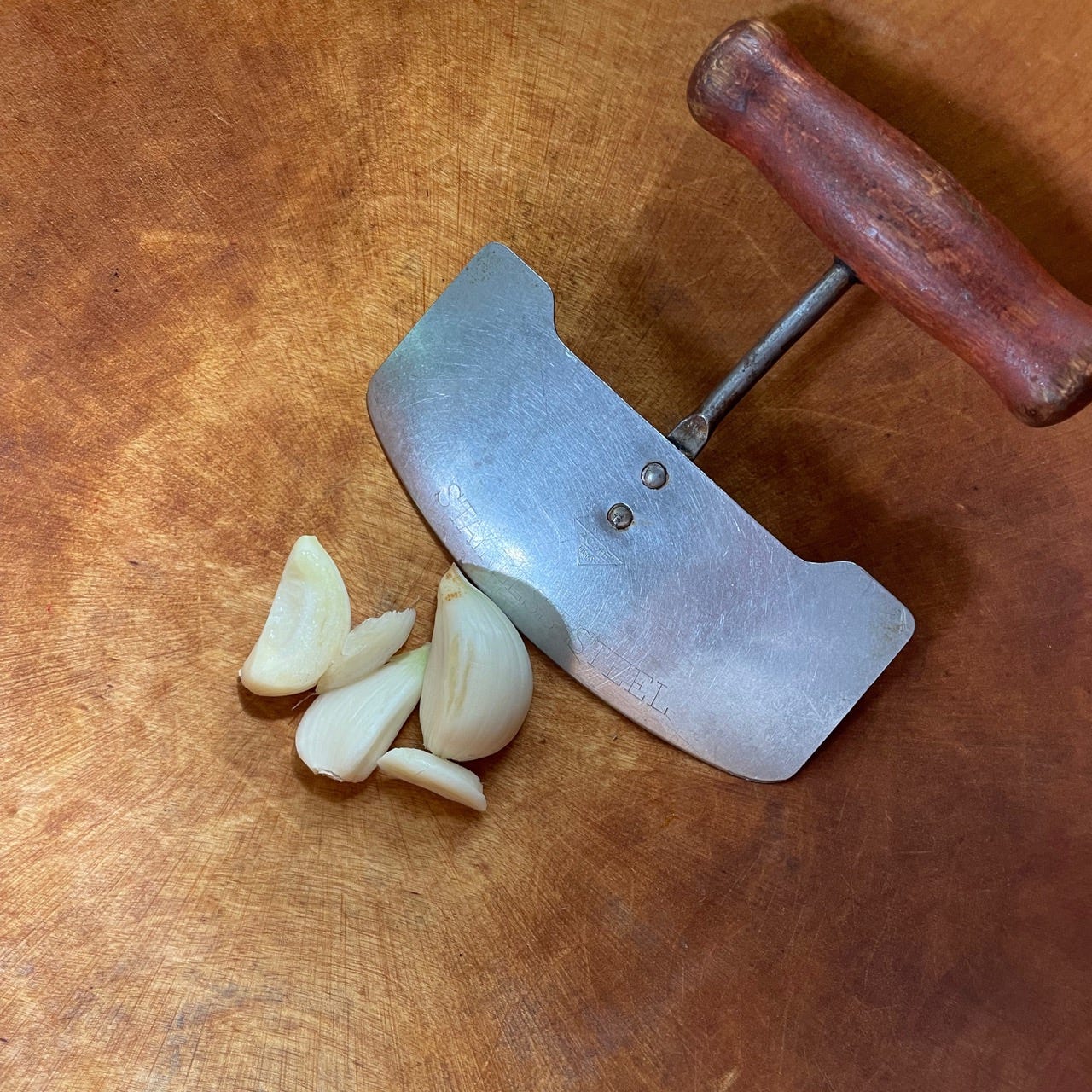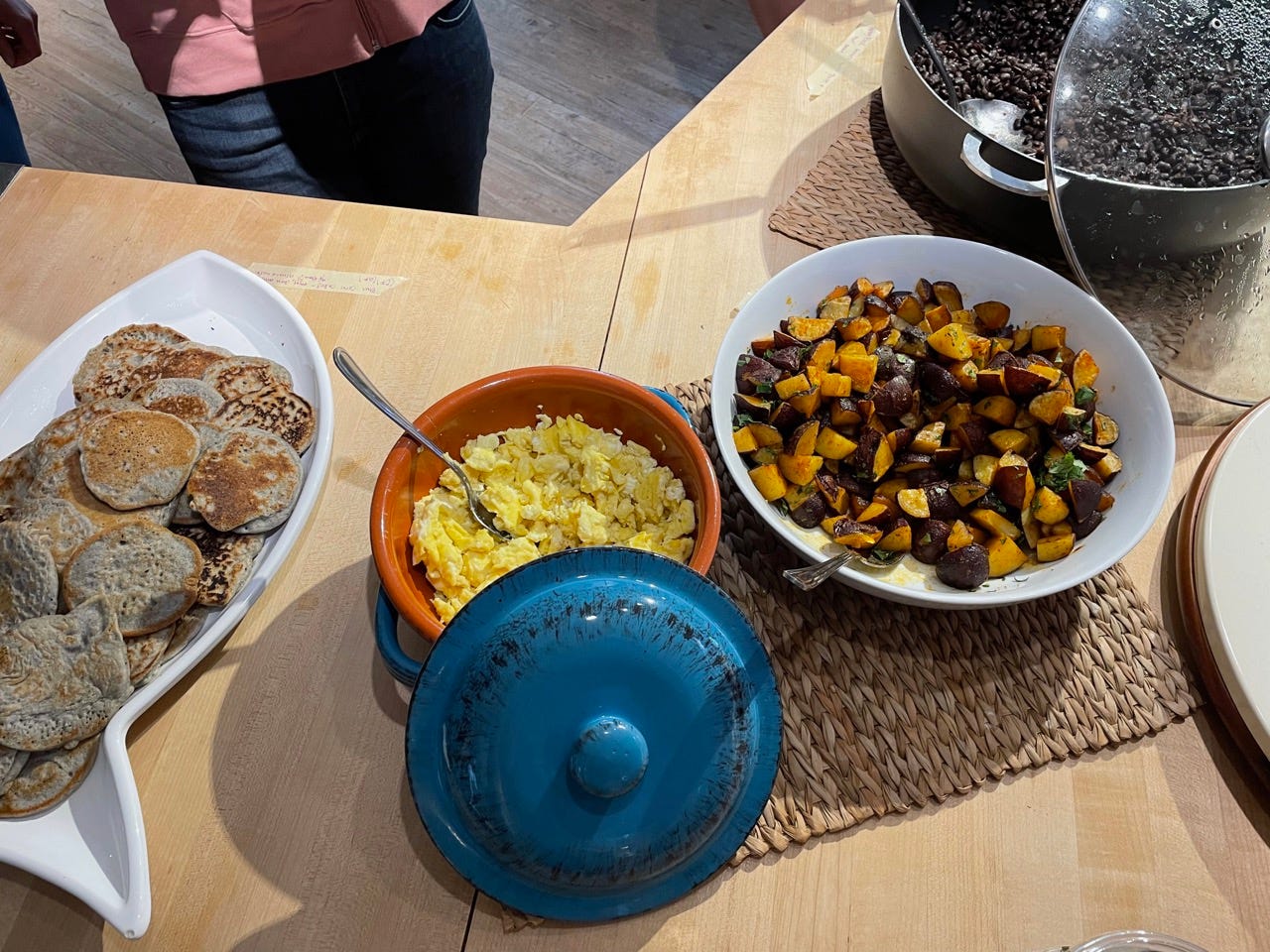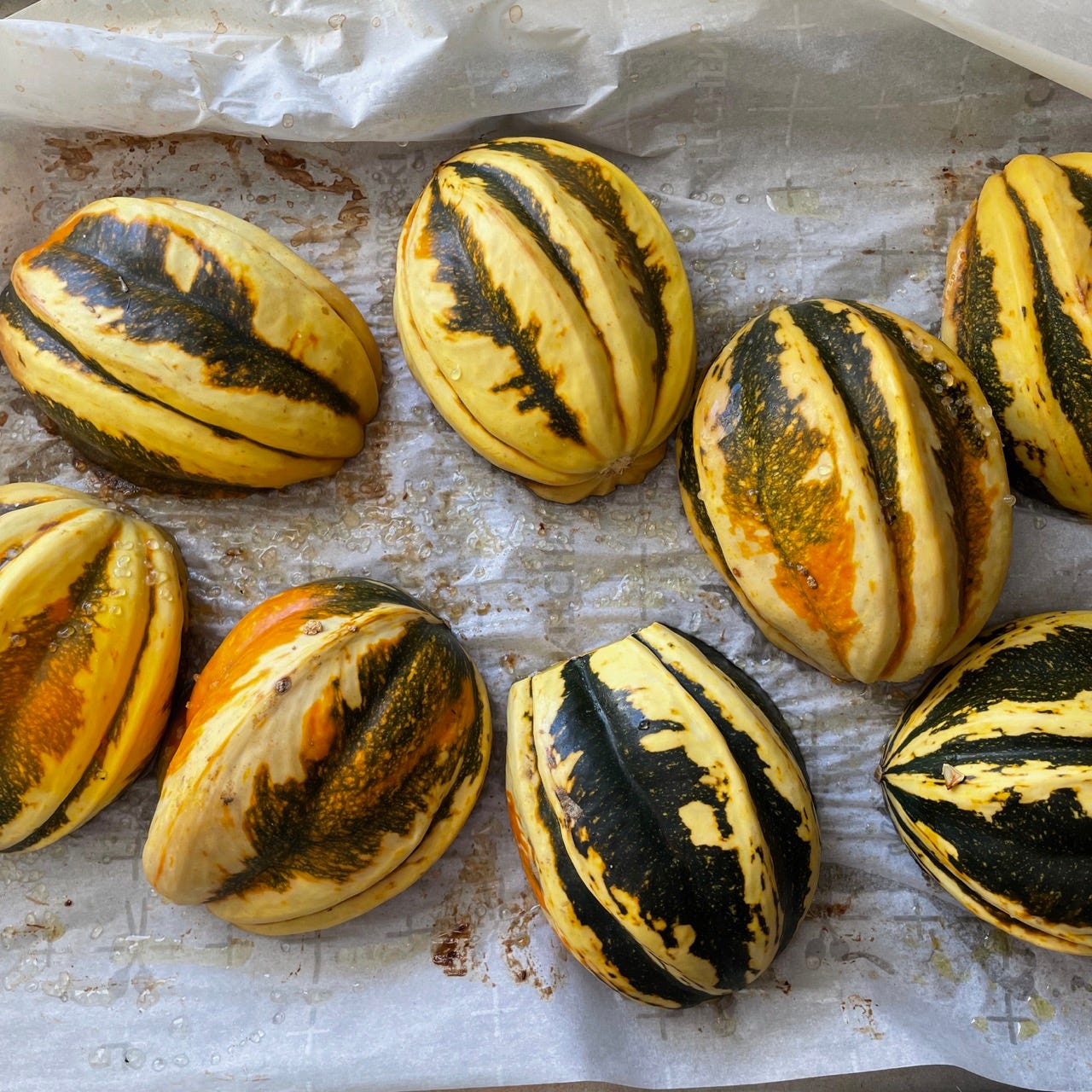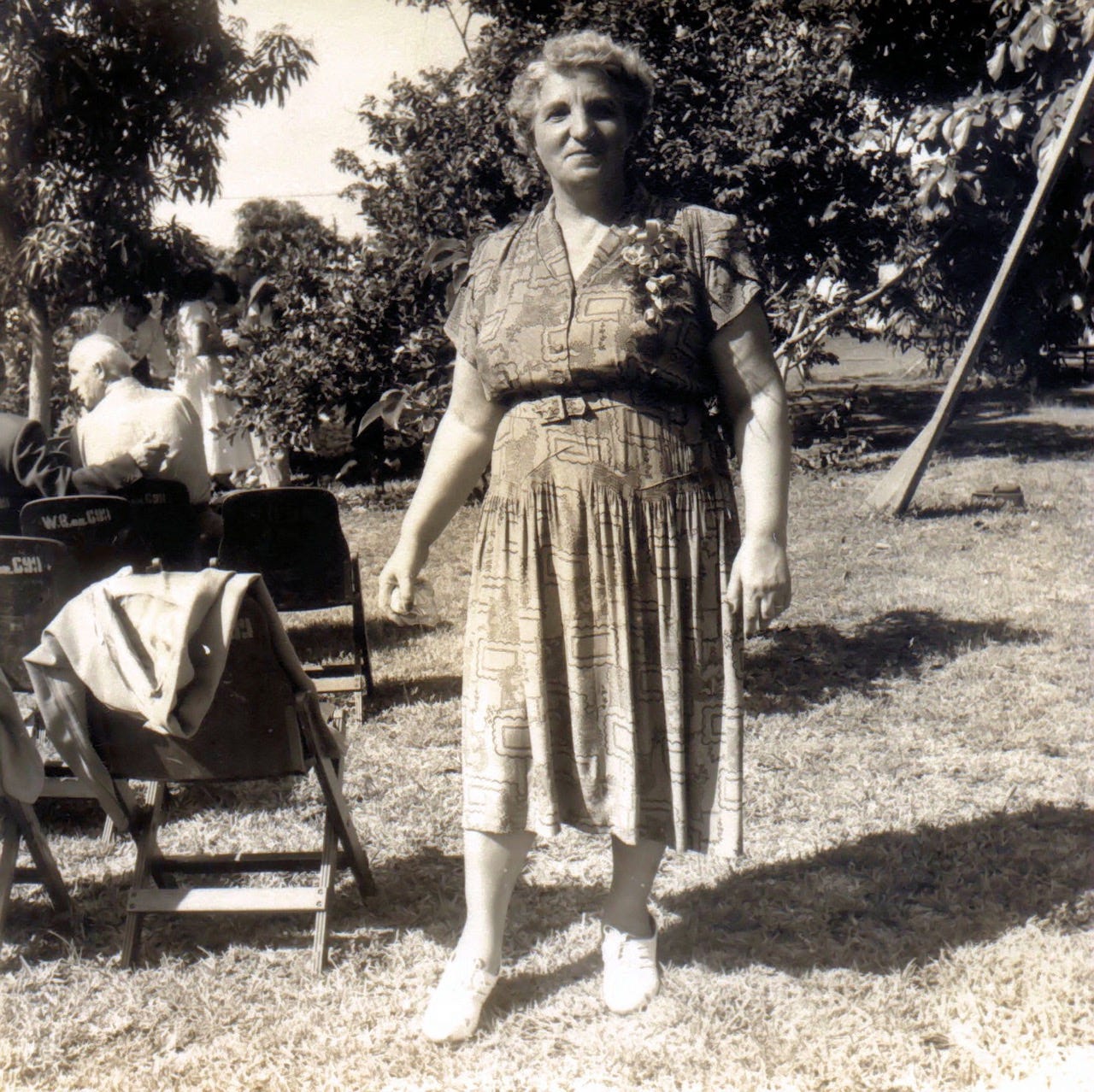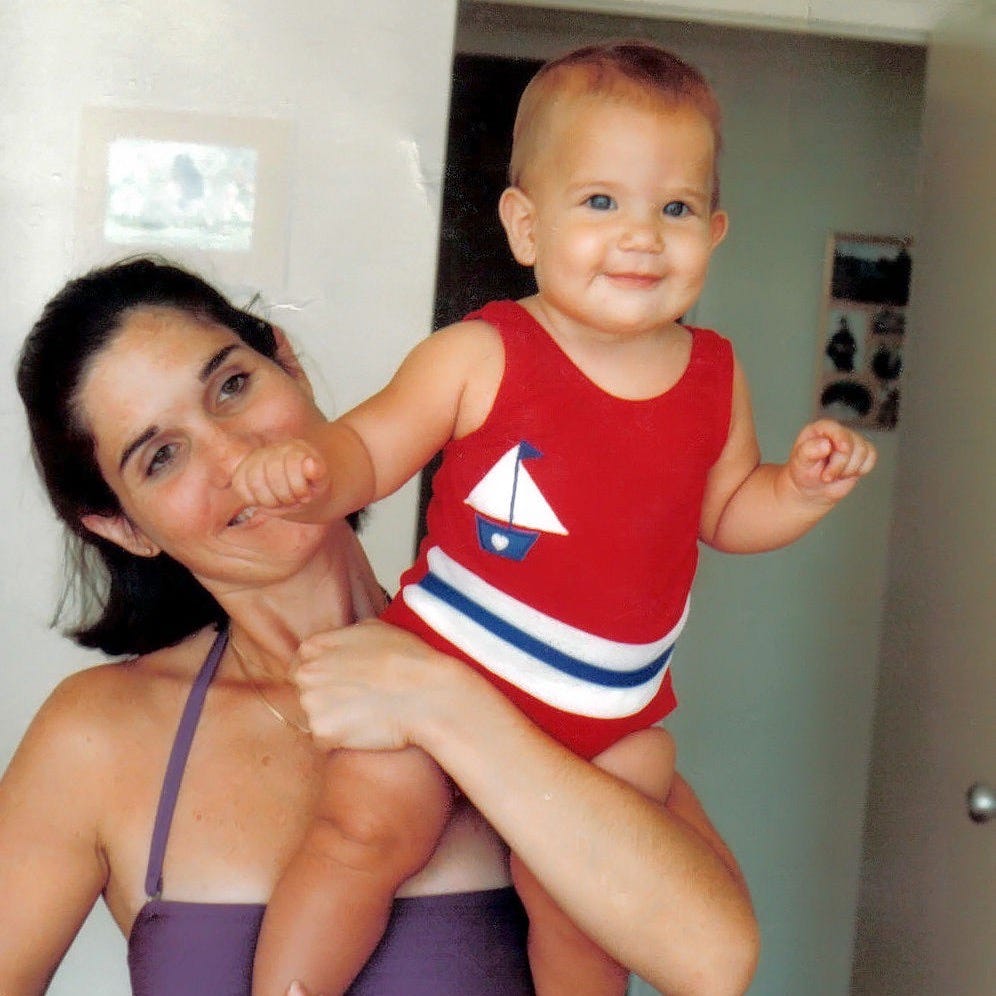Ancestors (Tepary bean breakfast)
Cooking at the intersection of where I am and where I’m from
I didn’t think of myself as having ancestors. Indigenous to nowhere, I’m descended from Jews in diaspora from North Africa and the Middle East, through Eastern Europe, further scattered by the dissolution of the Austro-Hungarian Empire and the 20th-century pogroms. I can trace my family back only to my great-grandparents, all but one of whom migrated from Europe in that generation, their origins including Russia, Ukraine, Poland, Hungary, Austria, Romania, and the Czech Republic. Escaping so much violence, no one talked much about where they came from and who came before them.
The word “ancestor” for me denoted roots that anchored somewhere, a lineage traceable and known, ancient wisdom passed down through generations. I didn’t feel like I had that, though what I had, I valued deeply. Tactile objects made by hand, especially those from my mother’s family. My great-grandmother Sarah’s beaded bag from the 1920s, thin red silk inside. My grandpa Mel’s wooden bowl and wooden-handled tool he used for chopping garlic and roasted eggplant. My mother Cathie’s wooden rolling pin, saved after her death by my adopted mother Susan, and a darker-hued pin Susan gifted me herself. These rolling pins and my grandfather’s bowl I brought with me to Sedona to cook for a “re-wilding” women’s retreat. I didn’t think of these tools as “ancestral,” but they made me feel held as I held them.
As I shopped for groceries in the Phoenix area before driving up to Sedona, I was greeted by the fruits of other ancestral communities. Tepary beans (Bafv) in black, white, and brown, grown for thousands of years by the Akimel O’Odham (Gila River Pima) peoples for their efficient use of water, were nearly extinct in this region until their cultivation was revived by Ramona Farms. I bought some, along with their blue cornmeal (S-I’Ibhaimagi huuñ chu’i) that spoke to me at Sphinx Date Palm & Pantry, the first shop I visited in Phoenix.

I had been planning to make breakfast tacos for Sunday morning, and the blue cornmeal sparked an evolution of the idea. Blue corn cakes, inspired by the recipe on the package and substituting ingredients to make them gluten- and dairy-free. Black tepary beans, cooked simply with red onion and salt. I arranged to pick up Harvest Moon potatoes from Blue Sky Organic Farms at their Wednesday CSA dropoff; these I would roast with olive oil and smoked paprika. Scrambled eggs from the farm share; sautéed red peppers, beet greens, kale, and garlic; scallions, cilantro, and cotija as garnishes. Native Ground coffee and teas from the Salt River Pima-Maricopa Indian Community. A breakfast to fuel the 17 women in their red rock adventures in Sedona that day.
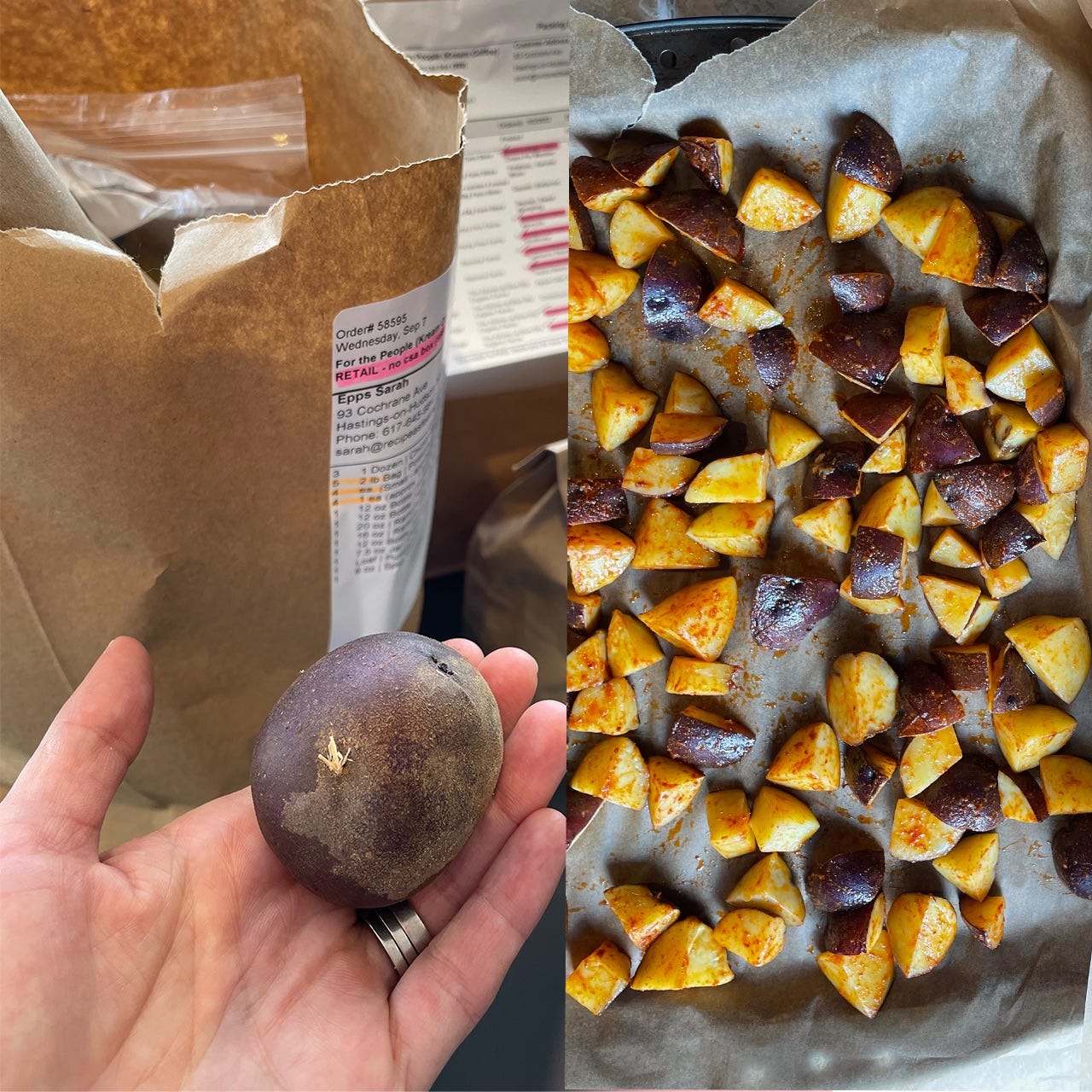
As with each of the meals I had served since Friday night when the retreat started, the women received the food with joy and seemed to feel all the love I had put in. Dr. Melissa Bird, whose ancestors are Southern Paiute, is a healer and coach with a PhD in social work. During breakfast, she pulled me aside. “The ancestors are hungry,” she said. “Can you get me a plate so I can feed them?” My heart fell to my stomach, some deep part of me not believing the food I had prepared was good enough, that I was good enough. I got her the plate. I asked her permission to witness her offering. She assented.
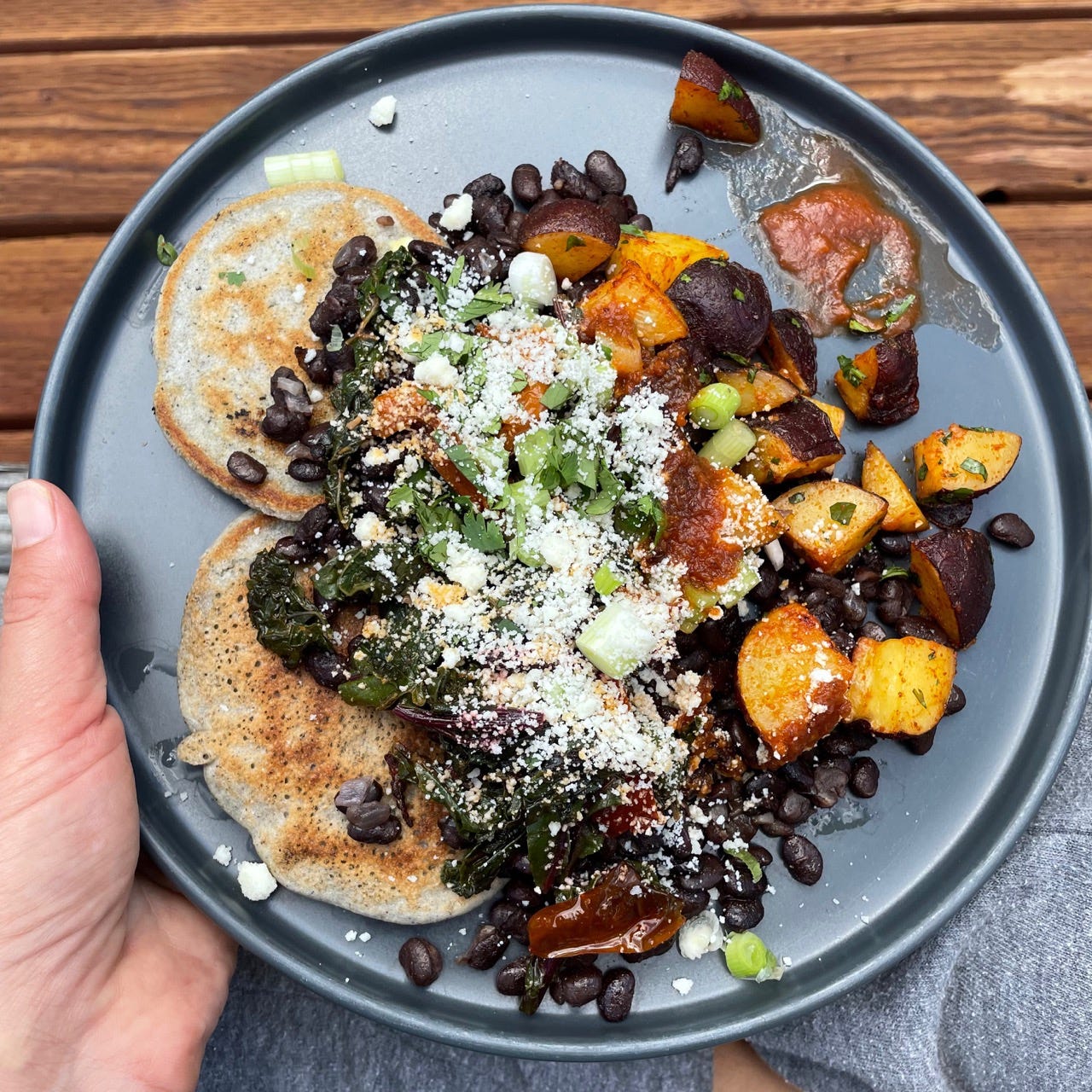
In this exchange, I understood my role and the limits of it. Her ancestors are not my ancestors; it’s not my role to speak to them. Yet I do have a part to play, honoring the traditional foods of these lands, gathering them with care, and preparing them with love.
For lunch, we served the third sister of the beans-corn-squash relationship: sweet dumpling squash, roasted plain and served alongside the leftover breakfast beans, vegan tamales, and a dandelion green salad speckled with pumpkin seeds. After lunch, I swam in the river behind the house, shedding whatever feelings of fear and doubt and unworthiness still sticking to me. I emerged barefoot and wet, refreshed and focused.
As the afternoon unfolded, my menu transitioned from honoring the foods of this land to honoring the foods of the lands I come from. For snack, I served roasted chickpeas and sunflower seeds dusted with sumac and za’atar, spices I imagine my ancestors might have eaten pre-diaspora (yes, I now recognized my worthiness of claiming ancestors, “ancient as the Earth itself,” as Melissa offered). For dinner, I showed Benni, at 16 the youngest retreat participant, how to make Russian soup, a vegan version incorporating the squash as well as cabbage, onion, dill, and white winter barley from the Hudson Valley I had brought from home along with the spices. In the dimming sunlit sky, the women ate in contented quiet. “This soup tastes like something my Ukrainian grandmother would make,” Amrita said. “It does,” I agreed.
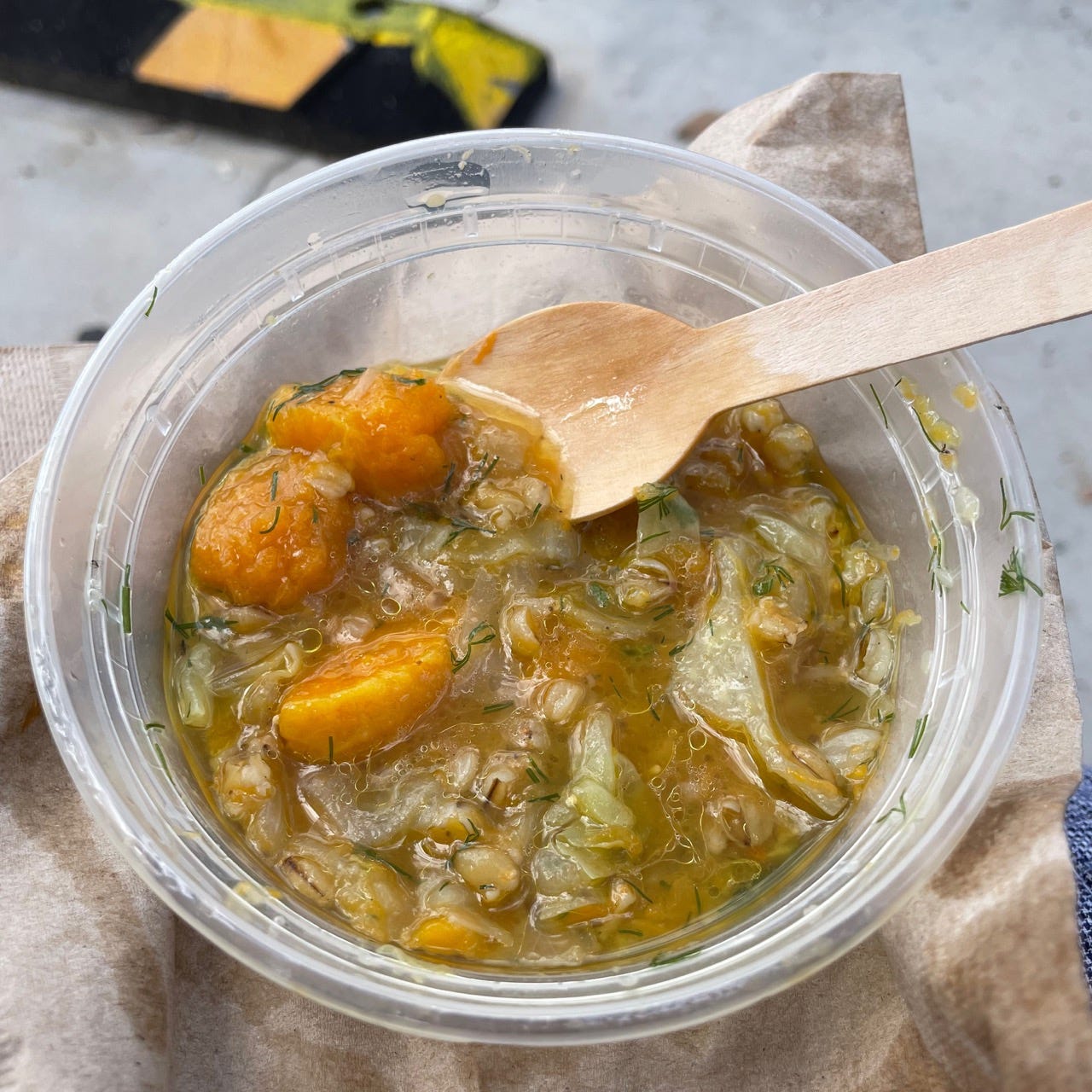
Recipe as feeling: Ancestors (Tepary bean breakfast)
Honor what’s ancient in you.
See where seeds have traveled.
Remember what you’ve learned.
Feel held in your journey.
Actual recipe
Tepary bean breakfast
Serves 18 hungry ladies, plus ancestors
Recipe for the blue corn cakes courtesy of Ramona Farms; I’ve added gluten- and dairy-free substitutions.
INGREDIENTS:
~For the beans~
1 pound black tepary beans (source)
Water
1 red onion, diced
salt
Grapeseed or other neutral oil
~For the blue corn cakes~
3 cups blue cornmeal (source)
2 cups gluten-free flour such as Bob’s Red Mill 1-to-1 (you could also use all-purpose if not avoiding gluten)
4 tbs. baking powder
1 tsp. salt
2 cups oat milk (original recipe calls for evaporated milk)
2 cups water
4 eggs, beaten
1/2 cup grapeseed or other neutral oil
4 tbs. agave syrup
~Accompaniments~
Potatoes, roasted with olive oil, smoked paprika, and salt (can prep day before)
Eggs, scrambled (can crack and beat eggs day before)
Greens such as beet greens, kale, or chard, sauteed with garlic and red peppers (can prep day before)
Scallions, chopped; Cilantro, chopped; Cotija, crumbled (can all be prepped day before)
Coffee and tea (Native Ground complements this meal perfectly)
Prepare the day before:
Cook the beans with your preferred method. We had access to an Instant Pot so used that, 25 minutes on high pressure cook, and they came out perfectly.
Mix the corn cake batter: Combine all dry ingredients, combine wet ingredients in a separate bowl, and gently mix together.
Prepare as much of the accompaniments as you can (see list above). Set out coffee and tea so that they’re ready to brew in the morning.
In the morning:
Brew coffee. In a large pan, saute red onion until translucent, add salt and drained beans. Simmer and season with more salt to taste, and keep warm while you’re preparing the other elements. Warm up potatoes and greens if you’ve cooked these the day before. Heat a griddle, cast iron, or nonstick pan until a water drop dances on it; brush with grapeseed oil, then cook corn cakes in batches. When bubbles appear on the top of the cake and it looks slightly dry, flip. Modulate the heat so the cakes are golden but not burning. Keep cooked cakes warm under a clean kitchen towel. Scramble your eggs and serve with all the accompaniments.


